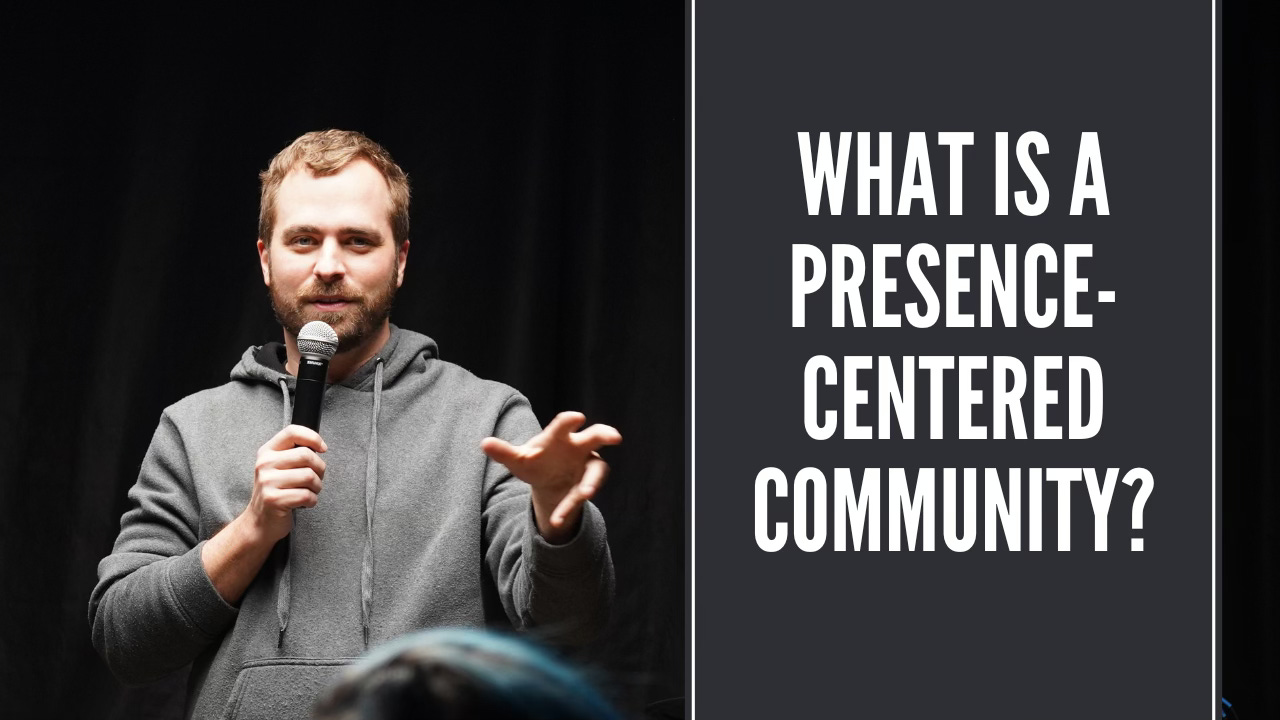In the first part of The Cry that Brings Deliverance, we considered a Biblical Pattern that appears throughout Scripture. Injustice leads to oppression, resulting in a “Cry” that causes God to intervene and bring justice. While we often think of God’s action as being “sovereign” and unconnected to human agency, the Scriptures present a different picture of a sovereign God intervening in response to His people. Now that we’ve considered the pattern broadly in Scripture and even in recent history, we will take a deep dive into the story of the Exodus as a case study in the Cry that brings deliverance.
Did you miss the latest Episodes of the Presence Pioneers Podcast? Click now to listen in.
The Cry That Brings Deliverance: Part 2
by Jonathan Friz
An Exodus Deep Dive
The Cry: Now it came about in the course of many days that the king of Egypt died. And the sons of Israel groaned [sighed, moaned] because of their bondage [labor], and they cried out, and their cry for help ascended to God.
The Response: So God heard their groaning and God remembered His covenant with Abraham, Isaac, and Jacob and God saw the sons of Israel and God knew them. Exodus 2:23-25 (my translation)
The “Cry” of the sons of Israel brings a response from God that has four aspects (v24-25):
So God heard their groaning
And God remembered His covenant with Abraham, Isaac, and Jacob
God saw the sons of Israel
And God knew them (Yada)
God has clearly been aware of what’s happening to Israel the entire time. However, the ascension of the cry produces what we will refer to as a “Covenant Response” where God begins to act in accordance with His covenant promises. These four key words, “heard”, “remembered”, “saw”, and “knew” are not there to indicate that prior to the Cry, God was ignorant of Israel, their suffering, and His promises to them. Rather, they indicate that He has now begun to move in response. He is not just aware of their problem, He is actively moving to bring deliverance.
Clearly, the writer of Exodus wants us to understand that the Cry is what moves God to deliver His a Covenant response.
God Begins to Respond
In Response to the Cry, God first appoints Moses as a deliverer.
“I have seen the oppression of My people who are in Egypt, and I have heard their cry because of their taskmasters, for I know their sorrow [pain]. So I have…[first] Come down to deliver them out of the hand of the Egyptians and [second] to bring them up to a land flowing with milk and honey.” Exodus 3
The Cry is because of oppression in Egypt, but immediately it becomes clear that God has more in mind than simple deliverance.
While the Cry goes up because of affliction and pain, God intends not only to deliver Israel, but also to fulfill His promise to Abraham to bring them into the promised land. Furthermore, in this same passage, we see the revelation of God’s name “I AM”, a name that was not made known to Abraham, Issac, and Jacob.
While Israel’s pain is the trigger for the Cry, we begin to see that God’s Response is greater than simply freeing Israel from oppression. His covenant response includes God taking the Abrahamic covenant to the “next step” by giving Israel the blessings of the promised land and bringing further revelation of His Name and Nature.
The Deliverer Confronts Pharoah
As God begins to move to bring deliverance, things get worse before they get better:
Moses’ initial approach to Pharaoh makes the oppression worse for the Israelites.
Pharaoh does more evil to God’s people.
This serves to increase Israel’s cry to God and now to Moses as well.
God Reveals More of His Heart:
This increased oppression is discouraging to Israel and Moses but the resultant Cry causes God to reveal more of His plan and purposes in Exodus 6. God is planning to bring Reciprocal Judgment on Pharaoh and Egypt, Fuller Revelation of who He is (His Glory), and a Wedding so that He can dwell with His people.
Exodus 6:1: Just as Pharaoh has put God’s people under a “strong hand” (forced labor, compulsion), so God will put Pharaoh under a “strong hand” and drive out His people by force. (In general, God’s judgments of Pharaoh/Egypt will be symmetrical to the injustice of Pharaoh/Egypt).
Exodus 6:2-3: God emphasizes that He is revealing “His Name” at this time in an unprecedented way to Moses and Israel (revelation of the glory of God)—this has never happened before
Exodus 6:5-8: In response to the cry of Israel God has heard and remembered His Covenant. He promises the following actions:
He will bring Israel out from under the burdens of Egypt.
He will rescue Israel from bondage (slavery).
He will redeem [kinsman redeemer/marriage and covenant language] Israel with great judgments.
He will take Israel as His own people and He will be their God (Marriage language).
Israel has “tunnel vision” because of their oppression. They are not thinking strategically about their future, they are simply crying out because of agonizing oppression. God, on the other hand, uses their cry for deliverance to initiate His larger, strategic plan. The LORD outlines His divine strategy in response to the Cry with 3 major goals:
Judgment on the oppressors of His people and deliverance for His people. This first point is what Israel is consciously asking for.
Greater Revelation of who God is (His glory) both to His people and to His enemies. God repeatedly makes known His intention to glorify His name and is revealing Himself by His name “YHWH” for the first time.
Taking Israel as His people and becoming their God (Covenant Marriage between God and His people) so that he can dwell with them (Exodus 40).
Clearly, points 2-3 of God’s plan have not entered into the mind of the Israelites—and yet the Lord is using their Cry to initiate and launch His own “Covenant Agenda”.
In summary, the pattern looks like this: Oppression leads to The Cry leads to Deliverance leads to Greater Revelation of God’s Nature leads to Greater Worship and a Marriage of God and His People.
God’s Judgments: Making Egypt Cry Out!
As the plagues of Egypt increase, Pharaoh’s heart is hardened first by himself and then by God. But Pharaoh refuses to “cry out” even as the plagues increase—instead he requests “prayer” from Moses. Prayer can have the same sense as “the Cry” but here, the contrast shows us that the plagues have not yet penetrated Pharaoh’s hard heart. God intends to make Pharaoh and Egypt “Cry Out” just as they have made Israel “Cry out”. As the drama escalates, we see God’s heart to pay back Egypt in full for what they have done to the sons of Israel.
Exodus 11:6 God promises His final judgment will release an unprecedented “cry” from Egypt.
Exodus 12:29-30: Egypt as a nation suffers a “great cry” as the first born in each family are killed.
Exodus 14: Israel passes through the waters in an unlikely escape (like Moses) but the Egyptian sons are drowned (as Pharaoh drowned the Israelite boys in Exodus 1:22).\
Every element of God’s Judgement on Egypt is reciprocal and just. They are receiving themselves what they have done to Israel. For Instance:
Pharaoh put Israel under bondage--forced labor, no freedom all for the glory of his name; God hardened Pharaoh’s heart (lack of freedom) and laid affliction on him and his people for the glory of HIS Name
Egypt afflicted Israel, causing them to “Cry out”. Now God’s judgment has brought that back on their own head, causing a “Great Cry” from all Egypt.
Egypt plundered Israel through forced labor; Israel plunders Egypt as they leave, taking the treasures of the Egyptians.
Egypt afflicted Israel, God’s “Firstborn”. God has afflicted the firstborn of Egypt
Pharaoh threw the Israelite sons into the Nile river. Now God has thrown the Egyptian sons into the Sea
Just as Moses was saved through the water as a forerunner, so now the entire nation has been rescued through the water.
Song and Sovereignty: The Aftermath
Sovereignty: Exodus 12:40-41: We learn that the departure of the children of Israel is taking place in exact accordance to God’s prophetic plan: exactly 430 years to the day after they arrived in Egypt.
God’s Sovereignty and foreknowledge are in full view, however, that does not remove the importance of “the Cry” in moving God to action. Our voice matters to God’s purposes and human history. God’s sovereignty works through His people; we are His appointed means to act in the earth.
Song: Exodus 14:31 Thus Israel saw the great work which the Lord had done in Egypt. So the people feared the LORD and believed the LORD and His servant Moses. The Moses and the children of Israel sang this song to the LORD…
Because of God’s deliverance, God’s people enter into another type of semi-involuntary cry—praise and exultation! The involuntary Cry that comes from oppression is turned into the shout of victory and the song of the Lord and of Moses. “The Song” is an inverse response to “The Cry”, a semi-involuntary response to goodness (as opposed to oppression and evil).
In the final part of “The Cry that Brings Deliverance” we will consider the implications of the Biblical Pattern and the Exodus Story on the Return of the Lord…









